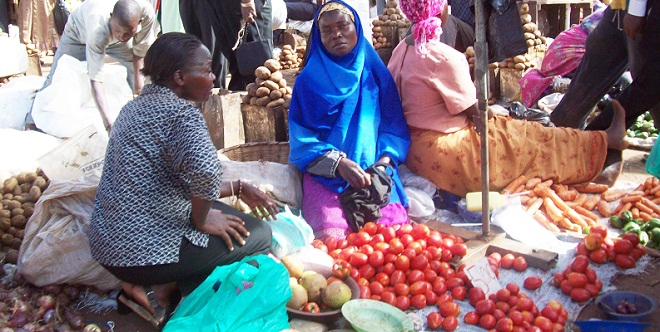
COMMENT | Amumpiire Anna Akandwanaho | The outbreak of COVID19 pandemic is causing innumerable human suffering globally and there is fear that it is likely to worsen gender based inequalities worldwide. When a crisis hits a country, women are among those who suffer the most.
The world is currently facing the COVID-19 pandemic in which local media reports have shown increased violence against women in Uganda.
The Uganda Deputy Police spokesperson recently reported an increase in domestic violence cases since the lock-down was instituted (about 328 cases).
Additionally, the plight of women working in the informal sector- for example in markets and street vendors has been documented. The travel restrictions have caused financial challenges and uncertainty for these women.
With the world battling both climate change and COVID-19, there is no doubt that more women will be severely affected than men.
At a dialogue held in March this year organised by Care International in Uganda,in partnership with Advocates Coalition for Environment and Development(ACODE), challenges faced by women as a result of climate change effects were revealed.
The major issue of concern was the fact that women and men experience climate change impacts differently, with women being more vulnerable than men. This is because of the socially constructed roles and responsibilities.
At this dialogue the need for climate change affirmative action for the most affected was emphasised.
Furthermore, a study undertaken by the Ministry of Water and Environment titled: ‘Gender and Climate Change: Assessing Impacts and Strategies for Mitigation and Adaptation to Climate Change in Uganda,’ found that due to their traditional responsibilities, women are most vulnerable to the impacts of climate change, notably food insecurity and water shortage.
Secondly, the adaptive capacities of both men and women are generally low due to various factors including; limited access to weather and climate information and limited access to, and control over, resources such as land and water, particularly among women.
The study also revealed that there was a high level of poverty among the rural and urban poor and low participation in relevant social networks that may provide resources or various forms of support needed to cope with the impacts of climate change.
A Care International in Uganda report (2019) on Gender-Sensitive Climate Vulnerability and Capacity Assessment rightly recommended that there was need to create alternative income generating activities or interventions for women that would reduce the wealth differential gap with men.
There is also a necessity to strengthen women’s land tenure rights in order to minimize inequalities arising from ownership of land and any other key resources. The report further states that there is need to develop area specific safeguards to climate change hazards and risks to the agriculture, education, health and infrastructure sectors; in addition to strengthening stakeholder collaborations on gender specific coping and adaptive strategies and mechanisms.
The COVID-19 pandemic and climate change both require a holistic approach by government and other key stakeholders. Just like the recommendations to address the gender issues with climate change, the same should apply to COVID-19 policy responses.
While the government of Uganda should be applauded for ensuring that maternal health services are accessible during this pandemic, it is still uncertain whether these services are easily accessible at district or sub county levels. Although the current COVID-19 measures are commendable, they should deliberately be gender responsive and target women and girls in all efforts to address the socio-economic impacts of the virus.
*****
 The writer works with Advocates Coalition for Development and Environment (ACODE)
The writer works with Advocates Coalition for Development and Environment (ACODE)
 The Independent Uganda: You get the Truth we Pay the Price
The Independent Uganda: You get the Truth we Pay the Price



